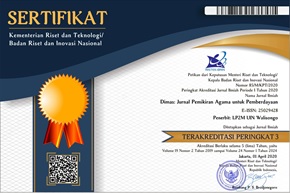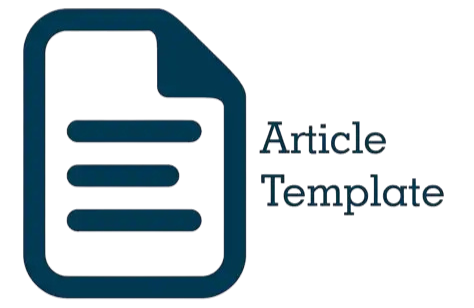Soft Skills Training to Become Professionals for Students at Samakisast Wittaya School in Sadao, Thailand
DOI:
https://doi.org/10.21580/dms.v25i1.21506Keywords:
Professional training, Soft Skills, Student developmentAbstract
This community service program was conducted at Samakisast Wittaya School, Sadao, Thailand, to address the lack of students’ interpersonal readiness for higher education and employment. The activity aimed to strengthen soft skills such as professional demeanor, communication, teamwork, and courteous speech. Using participatory action research integrated with community-based research, service-learning, and asset-based community development, the one-day program engaged sixty students through tutorials and rotating practice stations focusing on appearance, posture, handshake protocol, and polite expressions. The results showed high participation, improved understanding of the importance of soft skills, and observable behavioral enhancement during coached demonstrations. Tangible outputs included behavioral rubrics and photo documentation for continued use. The program concludes that a participatory, low-cost, and asset-based model effectively embeds soft-skills training into school routines and can serve as a foundation for sustained teacher-led reinforcement and future quantitative evaluation.
Downloads
References
Alawiyah, T., Handayani, F., Rossa, A. T. R., Syaefuridjal, A., Gaffar, A., Islam, U., Bandung, N., & Barat, J. (2023). Management of Transformational Leadership in Improving the Quality of Student Learning at Islamic Boarding Schools. Tarbawi: Jurnal Keilmuan Manajemen Pendidikan, 9(01), 27–36. https://doi.org/10.32678/tarbawi.v9i01.7254.INTRODUCTION
Bas, M., & Charoenkul, N. (2020). The Approach for Academic Management To Develop Siriwat Wittaya Primary Students’ English Competency. International Journal of Engineering Technologies and Management Research, 6(7), 63–73. https://doi.org/10.29121/ijetmr.v6.i7.2019.416
Bass, A. N. (2010). From Business Dining To Public Speaking : Journal of Business Education, 3(2), 57–64.
Dembo, R., Horowitz, S., Schmeidler, J., Morrison, C., & Miran, M. (1979). The influence of perceived speaker characteristics on student assessments of a drug education talk. Substance Use and Misuse, 14(1), 147–154. https://doi.org/10.3109/10826087909054582
Fetahu, E., & Lekli, L. (2023a). Developing Soft Skills, the Intangible Qualities Empowering Competitiveness and Success in the Labor Market, Case Study, Elbasan, Albania. WSEAS Transactions on Business and Economics, 20, 965–976. https://doi.org/10.37394/23207.2023.20.89
Fetahu, E., & Lekli, L. (2023b). The ‘Soft’ Gap: Educational Policy Making vs. Labour Market Requirements. Journal of Educational and Social Research, 13(4), 166–177. https://doi.org/10.36941/jesr-2023-0099
G, D. K., & Sathibabu, A. (2022). Identification of the Problems Faced by Students Due to Online Education. Technoarete Transactions on Application of Information and Communication Technology(ICT) in Education, 1(3), 13–18. https://doi.org/10.36647/ttaicte/01.03.a003
Hafidhuddin, D., Alim, A., & Subagiya, B. (2023). Budaya Pesantren: Strategi Membangun Budaya Ilmu, Adab, Dakwah, dan Mandiri. Iqamatuddin: Jurnal Ilmiah Pesantren, 1(1), 1–13.
Hellman, D. (2001). University of Maryland School of Law Judging By Appearances : Professional Ethics , Expressive Government And The Morality Of How Things Seem. 653(200).
Irfa, I. (2023). The Role Of Boarding Schools In Forming The Character Of Students (Case Study Of Imbs Miftahul Ulum Pekajangan Boarding School). OSF Preprint. https://doi.org/10.31219/osf.io/y79up
Jallow, A. S. (2023). The Role of Islamic Boarding School Education in Character Formation (Perspective of Islamic Psychology). Al Misykat : Journal of Islamic Psychology, 1(1), 63–72. https://doi.org/10.24269/almisykat.v1i1.6810
Jannah, S. F., Jannah, F., & Endang Maisuri, D. (2023). Pesantren Antara Tantangan Dan Harapan. Al Irsyad: Jurnal Studi Islam, 2(1), 13–22. https://doi.org/10.54150/alirsyad.v2i1.117
Jing, T., & Haroon, R. (2022). The Dilemma Of College Students ’ Professional Practice And The And Emotional Regulation Of Chinese Professional Women ’ S Retirement Decision-Making Encounter , Relationship Benefit And Customer Voluntary Performance From The Perspective Of Emotional Beh. BSAP, 25, 1–2.
Jordan, M. P., Rosebrook, E., & Schiff, E. (2018). The Challenges and Advantages for Seasoned Professionals Applying to and Navigating Doctoral Programs.
Junaidi, R. A. A., Rama, B., & Yahdi, M. (2023). Lembaga Pendidikan Pesantren Di Indonesia. Iqra: Jurnal Ilmu Kependidikan Dan Keislaman, 18(2), 101–107.
Kbiet, P. (n.d.). Mastering English and Soft Skills: A Journey from Campus to Corporate Anil B Patil Assistant Professor of English , Vidya Introduction: All of us know the significance of English as it is a target language for many of us to learn and master. The paper . 182–190.
Koea, J. (2022). The drawbacks of advantages. Medical Education, 56(6), 596–598. https://doi.org/10.1111/medu.14795
Maha, N., & Wati, S. (2023). Implementasi Kurikulum Pondok Pesantren Saengthip Wittaya Shcoll Yala Thailand Selatan. Arzusin, 3(3), 234–252.
Manachai, Y., Chatchawan, S., Ornuma, H., Rungtiwa, D., Porntip, P., Chulaporn, S., & Somchai, P. (2018). Effect of a health education program on reduction of pediculosis in school girls at Amphoe Muang, Khon Kaen Province, Thailand. PLoS ONE, 6.
Mardiah Astuti, Herlina Herlina, Ibrahim Ibrahim, Aldi Junandar, M. Bagus Prasetyo, & Dini Marega. (2023). Mengoptimalkan Peran Pondok Pesantren Dalam Pendidikan Islam. Jurnal Kajian Dan Penelitian Umum, 1(3), 157–168. https://doi.org/10.47861/jkpu-nalanda.v1i3.237
Martin, M. Y., & Stanfill, A. G. (2023). On the road to achieving work–life balance in academia. Clinical and Translational Science, 16(4), 553–556. https://doi.org/10.1111/cts.13485
Muhamad Slamet, Y., Ofi Afiatun Hindun, U., & Siswadi. (2023). Implementasi Pendidikan Eko-Profetik Di Pondok Pesantren. Jurnal Pendidikan Islam Al-Ilmi, 6(1).
Mushthofa, R. Z., Aminah, S., & Pesantren, D. (2023). Menggugah Kesadaran Berdemokrasi. 18(01), 82–90.
Mytsenko, V., & Rusanovska, T. (2023). Principles Of Soft Skills Formation In Students Of Higher Education Institutions: Theoretical And Practical Aspects The article describes theoretical and practical aspects of the basic principles of soft skills. Academic Notes Series Pedagogical Science, 1(208), 192–196. https://doi.org/10.36550/2415-7988-2023-1-208-192-196
Nataliia, H. (2023). Soft Skills in the Process of Ensuring the Principles of Education with a Life Force. Asia-Pacific Journal of Management and Technology, 03(03), 33–37. https://doi.org/10.46977/apjmt.2023.v03i03.004
Nurcholis, A., & Salaeh, B. (2019). Epistimologi Kurikulum Bahasa Arab Di Sekolah Menengah Mutawasitah Piraya Nawin Klonghin Wittaya Patani Thailand Selatan. Arabi : Journal of Arabic Studies, 4(1), 75. https://doi.org/10.24865/ajas.v4i1.124
Putri Ambarwati. (2023). Peran Pesantren Dalam Toleransi Antar Umat Beragama. MUSHAF JOURNAL: Jurnal Ilmu Al Quran Dan Hadis, 3(1), 183–195. https://doi.org/10.54443/mushaf.v3i1.118
Rahmlow, D. (2022). Commentary: Thinking of moving from academia into industry? Here are some things to consider. In Physics Today (Vol. 75, Issue 10, pp. 10–11). American Institute of Physics. https://doi.org/10.1063/PT.3.5090
Robbaniyah, Q., & Lina, R. (2023). Pondok Pesantren Dalam Menghadapi Perubahan Zaman. J-Alif : Jurnal Penelitian Hukum Ekonomi Syariah Dan Budaya Islam, 8(1), 93. https://doi.org/10.35329/jalif.v8i1.3825
Rosmiati, R., & Hendriani, S. (2023). Implementasi Model Pembelajaran Soft-Skills Dalam Membentuk Moralitas Siswa Di SMP N 11 Sijunjung. Jurnal Kajian Dan Pengembangan Umat, 6(1). https://doi.org/10.31869/jkpu.v6i1.3966
Russell, B. (1980). The Appearance of Appearance. 445–453. https://doi.org/10.5840/cpsem198037
Sariakin. (2020). An Analysis on the Strategy of Teaching and Learning Process of Reading Skill At Mathayum Islam Bachok Wittaya School Thailand. Getsempena English Education Journal, 7(1), 148–158. https://doi.org/10.46244/geej.v7i1.1064
Sawaddemongkol, P., Boonphak, K., & Pimsarn, N. (2017). Development of Efficiency Management System for Private Kindergarten Schools in Samutprakan Province, Thailand. Creative Education, 08(07), 1099–1110. https://doi.org/10.4236/ce.2017.87079
Shakil, .Anila Fatima Shakil, Zaidi, S., & Saima Rafiullah. (2023). Exploring the Need of Internship Program for Productive Learning among Students at College Level In Pakistan. Voyage Journal of Educational Studies, 3(2), 1–16. https://doi.org/10.58622/vjes.v3i2.43
Tenscher, J., Koc-Michalska, K., Lilleker, D. G., Mykkänen, J., Walter, A. S., Findor, A., Jalali, C., & Róka, J. (2016). The professionals speak: Practitioners’ perspectives on professional election campaigning. In European Journal of Communication (Vol. 31, Issue 2). https://doi.org/10.1177/0267323115612212
Tyschenko, O. (2023). Soft Skills in Esl Teaching. 166–167. https://doi.org/10.36074/logos-28.04.2023.48
Varhata, O., Komar, T., Afanasenko, V., Kuleshova, O., & Mikheieva, L. (2023). «Soft skills» as an important condition for self-creation of the personality of socionomic professions specialists: Theory and practice. In «Soft skills» as an important condition for self-creation of the personality of socionomic professions specialists: Theory and practice. https://doi.org/10.36074/ssicspspstp-monograph.2023
Zick, T. (2015). Professional Rights Speech.
Zubaidi, A., & Ridlo, M. ’Ainur. (2023). Existence of Islamic Boarding Schools: Efforts to Build a Modern Education Mindset. Edunesia: Jurnal Ilmiah Pendidikan, 4(2), 749–762. https://doi.org/10.51276/edu.v4i2.383
Zubenko, O., & Ishchuk, N. (2022). The Importance of the Soft Skills Development of Higher Education Graduate Computer Specialists in Professional English Learning. 156–157. https://doi.org/10.36074/logos-09.12.2022.42
Downloads
Published
Issue
Section
License
Copyright (c) 2025 Dimas: Jurnal Pemikiran Agama untuk Pemberdayaan

This work is licensed under a Creative Commons Attribution-ShareAlike 4.0 International License.
Copyright
The copyright of the received article shall be assigned to the journal as the publisher of the journal. The intended copyright includes the right to publish the article in various forms (including reprints). The journal maintains the publishing rights to the published articles. Therefore, the author must submit a statement of the Copyright Transfer Agreement.*)
Licensing

This work is licensed under a Creative Commons Attribution-ShareAlike 4.0 International License.
In line with the license, authors are allowed to share and adapt the material. In addition, the material must be given appropriate credit, provided with a link to the license, and indicated if changes were made. If authors remix, transform or build upon the material, authors must distribute their contributions under the same license as the original.
_______
*) Authors whose articles are accepted for publication will receive confirmation via email and send a Copyright Transfer Agreement.









